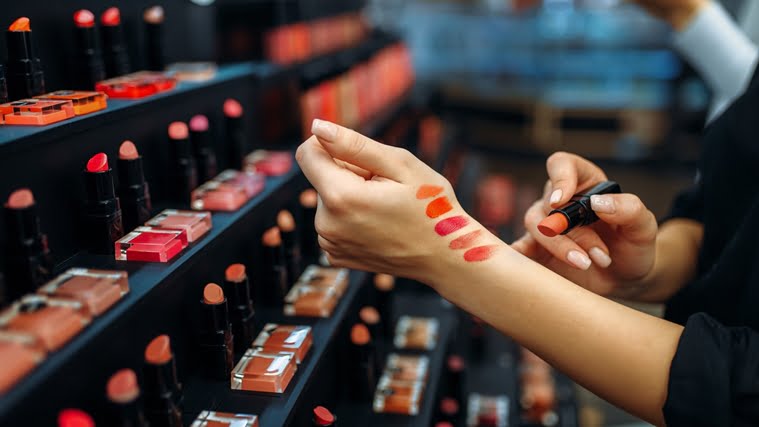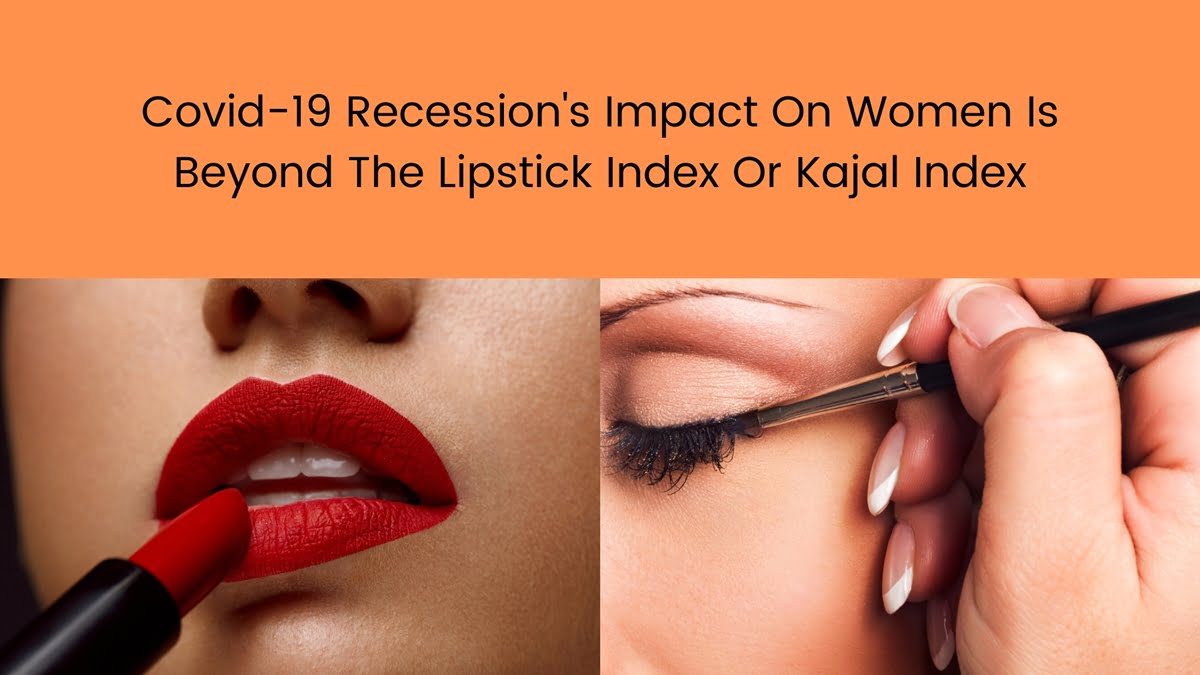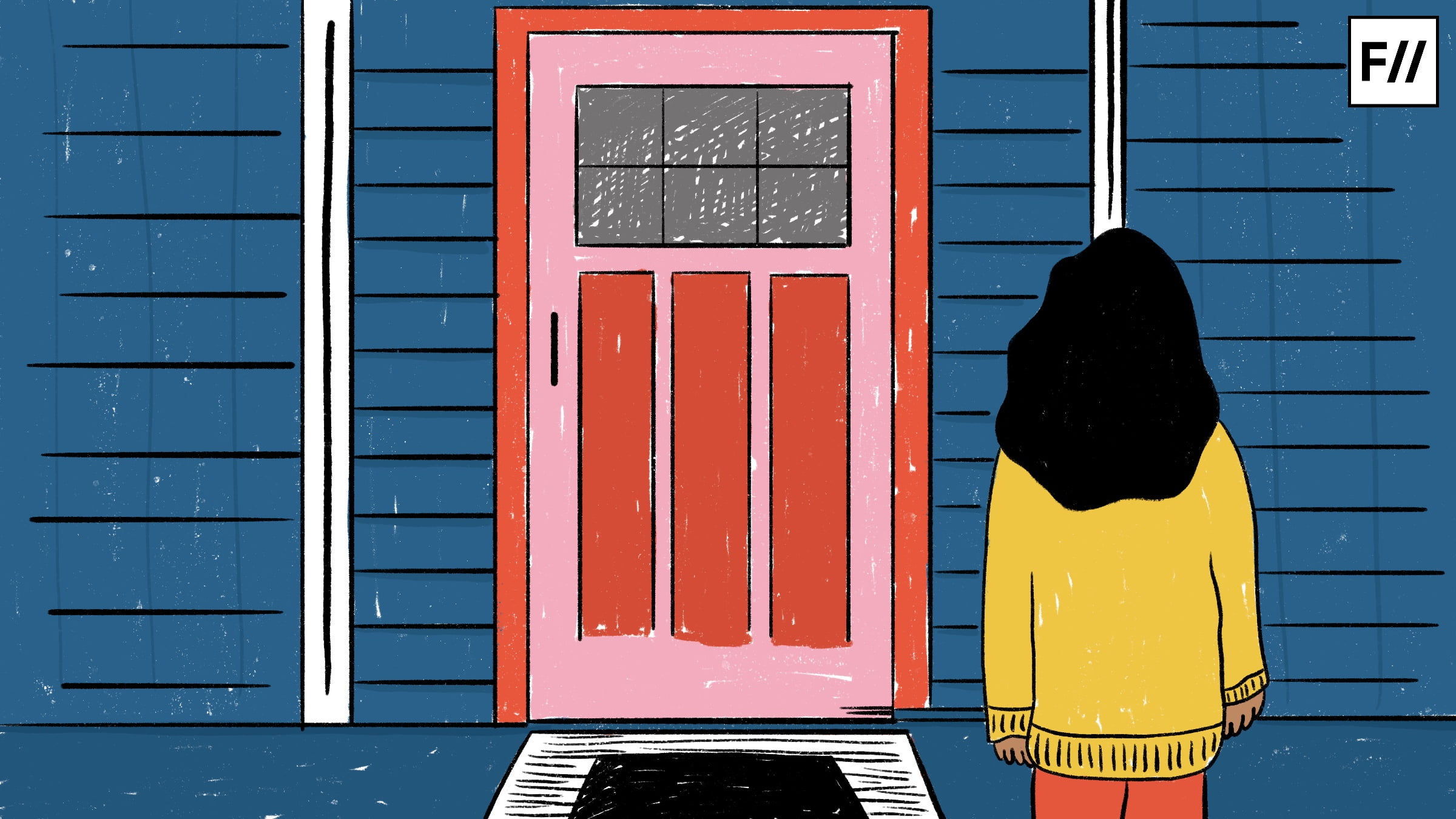Lipstick is one of the highest sold items within cosmetics industry during economic slowdown. This was stated in the research done by Leonard Lauder, during the study of shopping trend he observed during 2000s recession. Recent study of recession due to COVID-19 has however shown a reverse trend in the lipstick consumption pattern. There has been a sharp decline in the purchase of lipsticks. One of the reason stated in this decline is the increased usage of masks globally, that has made lipsticks almost redundant. While discussions around lipstick index lurks, there is yet another report stating that now Kajal index might gain its popularity and nail polish sales may increase due to women’s desire to switch to other cosmetic products during recession.
Also read: How Internet Beauty Gurus Sell The Myth of Perfection Online
Be it the lipstick index or kajal index, the indexing of women’s consumption pattern during recession only through cosmetic products is problematic. Recession or pandemic has much more a grievous impact on women’s lives than merely their inability to shop. Secondly, the study of these cosmetic indices is inherently based on the assumption that shopping remains of utmost priority to women even in a crisis. This misplaced prioritisation misses out the other important ways in which women’s life is affected during recession. On the other hand, recession due to pandemic has also led to many creative ways through which women cope with the crisis. Unfortunately, understanding women’s identity through cosmetic indexing fails to look at many of these aspects.

The study of these cosmetic indices is inherently based on the assumption that shopping remains of utmost priority to women even in a crisis. This misplaced prioritisation misses out the other important ways in which women’s life is affected during recession.
With globalisation, the beauty industry has flourished and expanded. This worked in collusion with many other industries like the media and the advertisement industries, for instance. Most ads have ensured that the one-dimensional ‘beauty’ produced through cosmetic products becomes the ‘desirable’. The glossier, the better it fits the parameters of being beautiful. Susan Bordo has argued that the definition of beauty through glossiness or slenderness defines women’s power and privilege in society. This idea of beauty is often marketed in the name of ‘individuality’ and ‘choice’. However, the fact remains that a choice thus made by women is often marked by the women’s desire to be acceptable and desirable in society. While there are arguments about usage of cosmetics as a matter of ‘self-expression’, but can such an argument be universalised?
Criticisms to cosmetic industry in objectifying women’s identity, creating psychological trauma etc. are not new. However, what is interesting is how the cosmetic industry revamps itself by bringing up different indices. These parameters are misnomers and they might never be the exact or inclusive representative of the actual condition of women or their choices. Within the Indian context, if one looks into current situation of pandemic, recession and the lockdown, the experiential reality of women has been quite different. Their struggles have been been centred on much more than just shopping for cosmetics, across different classes.
Working-women facing a job crisis during recession and pandemic exceeds the number of men facing a similar situation. A report by Organisation for Economic Cooperation and Development (OECD) has shown that in different countries, women’s unemployment rate was as high as 60-80% during pandemic led recession. Further, even if new jobs are created, more men are found employable as compared to women. Hence, the economic relationship of recession and women needs to be dealt in more substantive terms by looking into factors that actually effect their lives in real terms, like the job market.
A report by Organisation for Economic Cooperation and Development (OECD) has shown that in different countries, women’s unemployment rate was as high as 60-80% during pandemic led recession.
Also read: Scrapping For Glitter: The Dark Side Of The Cosmetic Industry
The other economic important aspect of recession that effects women more than men, is women’s relationship with their work. Women by convention is considered to be a homemaker and hence household chores turns out to be her ‘natural’ responsibility. This convention is normalised for women and is largely still accepted unproblematically. This domestic work is part of the unpaid labor and it often disguises itself as ‘duty’ and ‘love’. During the lockdown period in India, it was observed that women were overburdened with household work. The inability to do the household chores often spirals into domestic violence. The causality of domestic violence and lockdown can be established from National Commission for Women’s (NCW) report that stated a sharp rise in cases of domestic violence in India from 116 to 257 within ten days. Thus, the effect of recession is much more painful and violent that merely their inability to buy cosmetics.
The cosmetic indices are just marketing strategies to ensure that even during an economic crisis the interests of the cosmetic industry is not compromised. Moreover, the lipstick, kajal and nail polish indices have a class privilege problem. It is based on one section of the population’s ability to comfortably afford.
From lipstick to kajal index, what remains constant is the marketing strategy of essentialising women merely as shoppers. This however is far from the truth. The consumerist ethos is often externally fed as being the desire of women. Women essentially projected as ‘shoppers’ is a misguided perception. Such perceptions are further aggravated through concepts like cosmetic index. On the contrary, women have their own creative ways of coping with a recession like crisis. These creative ways include gardening, reading, poetry, cooking etc. However, a consumerist society misses this side of the women.
Hence, there is a need to have critical engagement with concepts like lipstick or kajal index. Understanding these indexes purely as statistical enquiry will somewhere misplace the many other substantive aspects which effects women during recession or a pandemic.
Kalyani is a Ph.D. scholar at the Center for the Study of Social Systems, Jawaharlal Nehru University, New Delhi. She works on gender issues. She also writes at ThePrint and RoundTableIndia. She is on Twitter, Instagram, and Facebook.





Very relevant article concerning on going actual situation of the society.